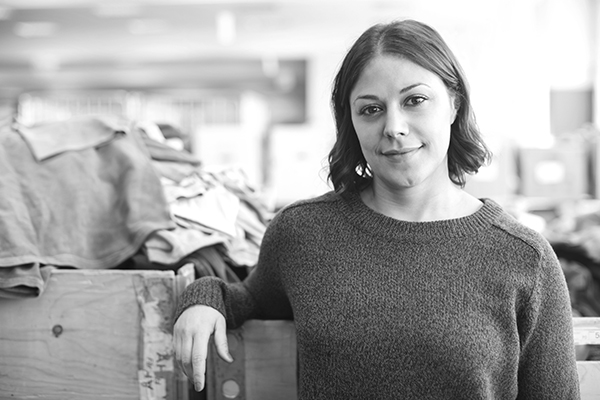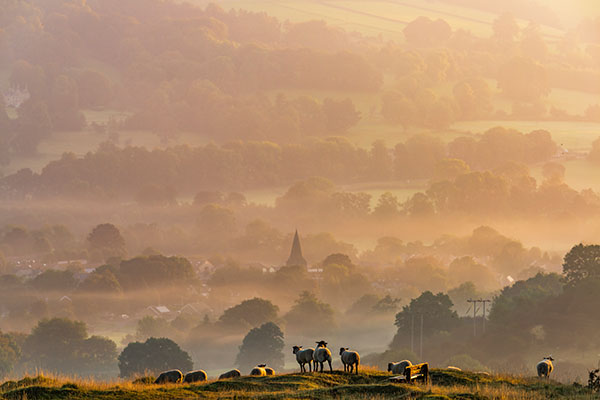Despite having become synonymous with John Sullivan’s acclaimed sitcom, Peckham is no land of fools and horses. You’re more likely to see African barbers, Middle-Eastern grocers, young artists and brewers earning a trade here than Del Boy’s and Rodney’s trying to make fast money – although that’s not to say you can’t find them in some of the pubs and cafes.
This point is worth making because SE15 is undergoing great changes. It’s one of those places to have found itself at the forefront of the debate about when regeneration becomes gentrification and whether you can have one without the other.
Central to that debate is the notion of community. Others have attempted to define what we mean when we talk of community, notably David Yates, in a recent RSA Blog.
Yates, who is working for the RSA on heritage, place and identity, argues that in the context of place-making, community is less some pre-existing entity to be ‘engaged with’ and rather something formed when people come together for a common purpose. Which, in a roundabout way, brings us back to our barbers and brewers of SE15.
I am one of a team of volunteers involved in a project called the Peckham Coal Line. The Coal Line would be an elevated park, path and cycleway, less than 1km in length and built on old railway coal sidings before coming down to ground level at an existing nature reserve.
Anyone familiar with the New York High Line will know the idea: to turn disused industrial space into something pleasant and functional that’s fit for today and the future. But comparisons with the New York project are something of a double-edged sword.
As Tim Richardson, founder of the Chelsea Fringe Festival, argues in his article on the Peckham project for The Daily Telegraph while the Big Apple version is seen by many as a means of driving up real estate prices and acting as a tourist attraction, the Peckham line would be ‘a viable and useful transport link for locals and commuters’.
Leaving that argument aside, as much as creating a physical link between two sides of Peckham, the Coal Line is about building community. In fact, the community building must come before the physical building. But how to do that in a meaningful way? To answer that question, it’s worth considering what’s happening at Peckham Rye station.
Plans have been afoot for some time to redevelop the station forecourt, opening it up to create a civic square. The £25million project has been led by Southwark council (the planning authority), in conjunction with Network Rail, which owns the station. It has not been without difficulty. Initial proposals were withdrawn in the face of local opposition that said the consultation process was flawed and superficial, leading to plans that failed to address the needs of the community.
In response, Southwark council launched a ‘co-design’ process led by outside consultants that would involve local knowledge much more in drawing up the concept for the plans. This process is ongoing and an application is expected this year, although some remain unconvinced that the co-design process has fully taken into account local views.
What we have seen with the station is an attempt to empower a community that was initially formed in opposition to something – the original plans – and use its energies to work forsomething – the revised plans.
We at the Coal Line are working against this backdrop. From the outset, it was agreed the Coal Line would only work if it was built on foundations rooted in the community. To that end, we began taking the idea to the streets. Digitally, of course, but critically, in the real world, too.
We gave talks to local residents’ associations, spoke to traders, presented the idea to Southwark council, local MP Harriet Harman, and walked the proposed route with Network Rail as the primary landowners. All were supportive.
At its northern end, the Coal Line would run at ground level through Kirkwood Nature Reserve, so we spoke to its management group who, like us, are volunteers. With their help, we organised a tea party at the reserve and invited those living in the nearby estate. We held further walks as part of the Chelsea Fringe Festival and Open House Week, were contacted by local arts groups excited by the possibilities the Coal Line offered for events. The Brick Brewery in Peckham is brewing a Coal Line beer. The network grew: Sustrans, Trees For Cities, London National Park City and Southwark Living Streets soon joined Peckham Vision as supportive partners.
We are now trying to raise £66,000 to develop a feasibility study and allow us to start testing some of the concepts along the route while continuing our community engagement. What we end up, we hope, is something that is part of a much bigger movement of people beyond the boundaries of Peckham who want to make connections within their neighbourhood by having an idea and making it real.
None of us have attempted anything like this before and we are fitting it in around our full-time jobs, volunteering our time in evenings and weekends – brainstorming in pubs and around dinner tables. Sometimes it seems an impossible task to raise so much money but the process of community building we are seeing inspires us.
As we have seen with Peckham Rye station, community can have a say in how their neighbourhood is shaped but key to it all is talking to everyone – the barbers and the brewers and, yes, the Del Boys too.
If you share these ideas and want to donate please visit our crowdfunding site to find out more.
Related articles
-
Changing how we see heritage can help us build back better
Becca Antink
How the heritage sector is making a difference in local communities.
-
It's time for democratic decision making in the third sector
Mark Swift
The voluntary sector has stepped up and worked together during the crisis. For the challenges ahead, it needs to make decision making more democratic.
-
Counting on recovery: collecting the data to inform policy post-crisis
Tom MacMillan
We’re starting to gather evidence on community responses to the pandemic, to help shape post-crisis policy. If you are too, let’s team up.




Be the first to write a comment
Comments
Please login to post a comment or reply
Don't have an account? Click here to register.